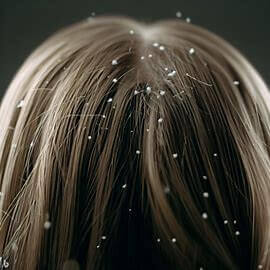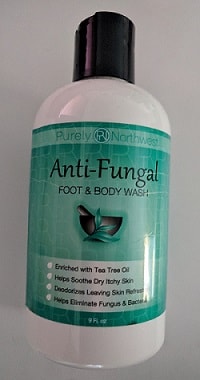
A majority of people who have hair loss also seem to suffer from dandruff and scalp itching problems. Some get these outbreaks intermittently, while others have a daily battle on their hands. One survey found that 100-300 hairs were shed daily in dandruff sufferers, versus 50-100 hairs per day in normal subjects.
Previously, I wrote a detailed post on the best dandruff shampoos in the world. I myself have to use such shampoos twice a week in order to control my scalp itching, inflammation and flaking. Scalps with dandruff tend to have large amounts of Malassezia yeasts and flora, which can be reduced by antifungal medicated shampoos.
Natural and Alternative Dandruff Treatments

However, there also exist alternative non-chemical natural treatments for dandruff that many claim to be very effective. Most such remedies are not scientifically proven to provide long-term relief for itchy scalps. Make sure to talk to a dermatologist for best advice.
Almost all of the below are natural products. All of them are readily available at grocery stores or pharmacies without the need for a prescription.
Per my online research, the most frequently mentioned alternative dandruff reducing products are:
- Apple Cider Vinegar (ACV) or just plain old vinegar. ACV is considered by many to be a miracle treatment for numerous medical and dermatological problems. Some people dilute a teaspoon of apple cider vinegar in water and drink the concoction every single day. To combat dandruff, apply a small quantity of ACV to your scalp while showering. It can be used in combination with a shampoo or conditioner.
- Tea Tree Oil. This product is recommended for numerous applications because of its antifungal properties. Tea tree oil contains terpinen-4-ol, which possesses significant anti-microbial properties. It also used to kill demodex mites. Other oils such as emu, eucalyptus, olive and peppermint are also said to help reduce scalp dead skin turnover.
- Baking Soda. Besides fighting fungus, baking soda powder also absorbs excess oil on the scalp. It can cause a mild burning sensation.
- Listerine or other mouthwashes with antiseptic properties. The alcohol in listerine can kill off Malessezia Globosa. However, frequent use of such a product can inflame and irritate your scalp skin. Other side effects include an overly itchy and dry scalp.
- Aspirin. Crush the pills and leave on the scalp for 15 minutes or more, and then wash and rinse. Dirty work, but effective according to a number of online testimonials. Note that aspirin contains acetylsalicylic acid, similar to salicylic acid. The latter is found in many anti-dandruff shampoos.
- Aloe Vera Gel. Yet another widely cited natural remedy for numerous dermatological afflictions. The healing aloe plant contains antioxidants and soothes the scalp.
- Lemon Juice. Said to work by temporarily altering scalp Ph levels, which can destroy the Malassezia microbe.
What other natural products have readers tried to tackle their dandruff (seborrheic dermatitis)?
Note that in some cases, you might be suffering from psoriasis or eczema rather than dandruff. Sometimes, psoriasis and seborrheic dermatitis are indistinguishable from each other and referred to as “sebopsoriasis”. Recent research has concluded that sebaceous glands are atrophied in both these skin conditions
Diets that are heavy in oil and fat can sometimes cause issues such as excess sebum and an itchy scalp.
Allergies to certain foods can also exacerbate scalp inflammation and itching. And finally, stress can worsen mild cases of flakes and dandruff.